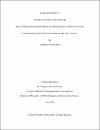Role of Protein Arginine Methyltransferase 5 (PRMT5) in WNT/β--CATENIN proliferative signaling in breast cancer
Abstract
Protein arginine methyltransferase 5 (PRMT5) activity is dysregulated in many aggressive
cancers and its enhanced levels are associated with increased tumor growth and survival.
In this study, we show that PRMT5 is overexpressed in breast cancer cell lines, and that it
promotes WNT/B-CATENIN proliferative signaling through epigenetic silencing of
pathway antagonists, DKK1 and DKK3, by binding to their promoter and inducing
symmetric dimethylation of H3R8 and H4R3, leading to enhanced expression of c-MYC,
CYCLIN D1 and SURVIVIN. Our findings also show that PRMT5 inhibition using
compound 5 (CMP5), reduces PRMT5 recruitment and PRMT5-induced epigenetic marks
in the promoter regions of DKK1 and DKK3, which consequently results in reduced
expression of CYCLIN D1 and SURVIVIN. Furthermore, CMP5 treatment either alone or
in combination with 5-Azacytidine and Trichostatin A restored expression of DKK1 and
DKK3 in TNBCs. In addition, PRMT5 inhibition in TNBCs inhibited AKT/mTOR
signaling by reducing phosphorylation of AKT and mTOR at Ser473 and Ser2448,
respectively. These molecular changes were associated with reduced proliferation,
migration and invasion of breast cancer cells, and induced their death.
DOI/handle
http://hdl.handle.net/10576/15402Collections
- Biological & Environmental Sciences [111 items ]


